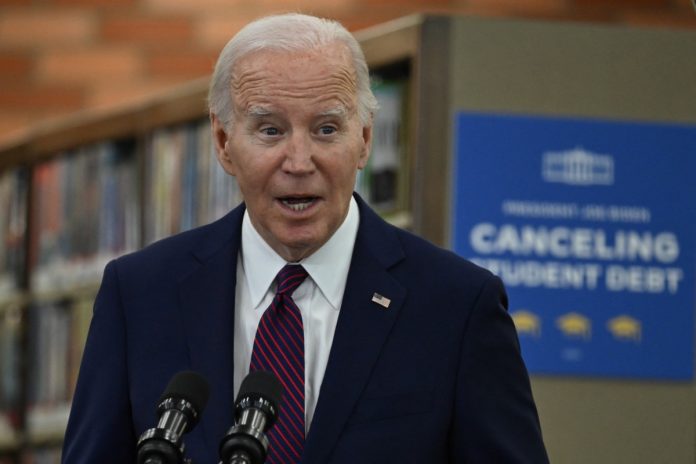In a significant gesture of renewed engagement with Africa, President Joe Biden pledged over $1 billion in humanitarian aid during his historic visit to Angola, marking the first time a sitting US president has set foot in the former Portuguese colony. The trip underscored a multi-pronged strategy to strengthen US-African relations, address pressing humanitarian issues, and counter China’s expanding influence across the continent.
Commitment to Humanitarian Support
Speaking at Angola’s National Slavery Museum in Luanda, Biden reflected on the shared legacy of the transatlantic slave trade, acknowledging its profound impact on global history. Against this backdrop, he announced the $1 billion aid package aimed at alleviating food insecurity and supporting displaced communities in 31 African nations grappling with the effects of unprecedented droughts.
“I’m announcing over $1 billion of new humanitarian support for Africans displaced from their homes by historic droughts,” Biden said, adding that the funds would address urgent needs such as food insecurity and bolster resilience in affected regions. The US Agency for International Development (USAID) confirmed that the aid would support refugees, internally displaced persons, and communities most impacted by the ongoing crisis.
Focus on Economic Partnerships
Biden’s visit also served to spotlight Angola’s strategic importance in the broader African economic landscape. During a meeting with Angolan President João Lourenço, the two leaders discussed initiatives to deepen economic and security partnerships. Central to these talks was the Lobito Corridor project, a US-backed infrastructure initiative designed to revitalize a key railway linking mineral-rich regions in the Democratic Republic of Congo (DRC) and Zambia to Angola’s Atlantic port of Lobito.
The project aims to facilitate the export of critical minerals, including cobalt and copper, vital for global industries such as electric vehicle production. With funding from the United States, the European Union, and other international partners, the initiative positions Angola as a pivotal player in regional trade and economic growth.
Highlighting the transformative potential of the Lobito Corridor, Biden remarked, “The future runs through Angola, through Africa.” His administration has prioritized infrastructure development as a cornerstone of fostering stability and economic growth across the region, presenting the project as a strategic alternative to China’s debt-heavy investments. Notably, Angola owes China $17 billion, constituting nearly 40% of its national debt, underscoring the urgency of diversifying its economic partnerships.
Addressing Human Rights and Security Concerns
While the trip focused heavily on economic cooperation, human rights groups called on Biden to address Angola’s domestic challenges, including alleged abuses by security forces. Amnesty International has reported that at least 17 protesters were killed by police between 2020 and 2023, while critics of the government continue to face detention.
Biden acknowledged these concerns during his discussions, emphasizing the importance of accountability and reforms. Advocacy organizations urged the US president to leverage his platform to promote democratic values and human rights protections in Angola.
The visit also included discussions on broader security issues, particularly the flow of weapons into Africa amidst global conflicts. Biden underscored the importance of addressing these challenges collaboratively to ensure regional stability.
Looking Ahead: The Lobito Summit
Biden’s Angola visit will culminate in a summit on infrastructure investment in the port city of Lobito. Leaders from Angola, the DRC, Tanzania, and Zambia are expected to join Biden in discussions aimed at advancing regional development initiatives and strengthening ties between African nations.
The summit represents a critical opportunity to align African economic aspirations with US support, offering a vision of collaboration that prioritizes local needs while countering external influences.
A New Era of US-African Relations
Biden’s Angola visit symbolizes a turning point in US-African relations, with the $1 billion aid package reflecting a commitment to addressing the continent’s most pressing challenges. By focusing on infrastructure, economic growth, and humanitarian support, the Biden administration is seeking to redefine America’s role as a reliable partner for Africa’s future.
As Biden continues his African tour, the world will watch closely to see whether these initiatives translate into tangible progress for the region and strengthen US-Africa ties in a rapidly evolving geopolitical landscape.

